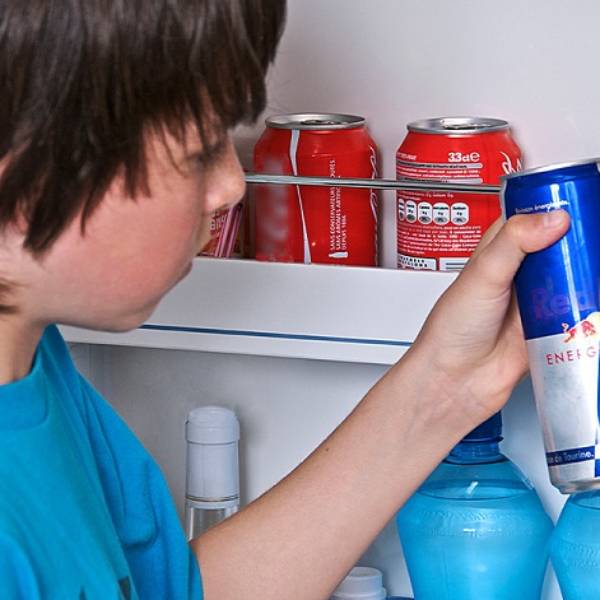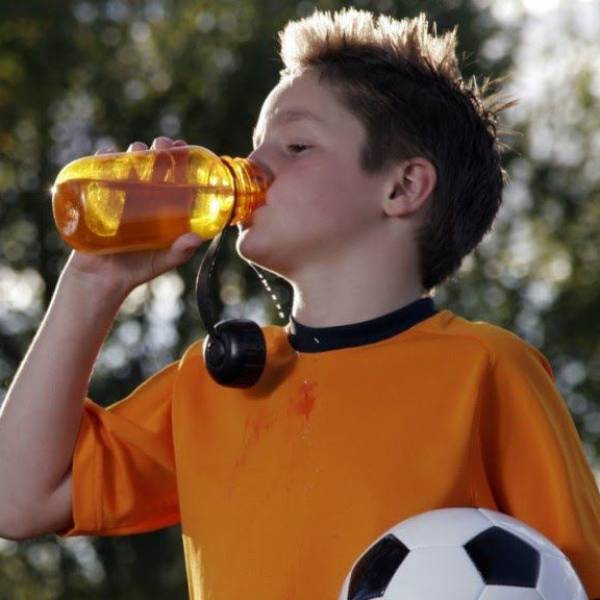Understanding Energy Drinks for Kids
Energy drinks for kids have become increasingly popular. Many children say they enjoy the taste and energy boost. Parents, however, often wonder if these beverages are safe. Energy drinks usually contain caffeine, sugar, and other stimulants. Understanding their effects can help parents make informed decisions.
The Ingredients in Energy Drinks for Kids
Ingredients in Energy Drinks
Energy drinks for kids often contain multiple ingredients that may be harmful. Most of these beverages include high sugar levels. This sugar can lead to hyperactivity, making it difficult for kids to focus. In addition, many energy drinks also contain caffeine. Caffeine can cause nervousness and disrupt a child’s sleep cycle, leading to insomnia. This lack of sleep can hinder academic performance and overall well-being. Furthermore, many brands add stimulants like taurine and guarana. These components can enhance the drink’s effects, making them even more concerning for children.

Parental Guidance and Awareness
Parents need to take the time to read labels carefully. Understanding what goes into these drinks helps ensure safety. Many ingredients may sound safe but can pose risks. Furthermore, energy drinks often promote high consumption rates, which can be misleading. Children may not recognize their body’s limits regarding caffeine and sugar intake. As a result, they may consume these drinks irresponsibly. Parents should educate their children about the potential side effects of such beverages.
They can guide kids toward healthier options, such as water or natural fruit juices. Promoting awareness and informed choices can protect children’s health. By discussing these topics openly, families can work together to make better decisions regarding energy drinks. Overall, awareness and communication play essential roles in safeguarding children’s health.
The Risks of Energy Drinks for Kids
Health Risks of Energy Drinks for Kids
Energy drinks can harm children’s health in various ways. Many energy drinks contain high caffeine levels, which can lead to serious heart issues. Children, due to their smaller body size, react more intensely to these stimulants. This heightened sensitivity can cause anxiety and restlessness among young consumers. Parents should note that even small amounts can lead to significant effects. Furthermore, excessive caffeine intake can disrupt sleep patterns, making it difficult for children to focus in school. A lack of sleep often results in fatigue and irritability, affecting their daily activities and overall well-being.
Long-term Consequences of Regular Consumption
Regular consumption of energy drinks carries additional risks beyond immediate effects. Many of these drinks have high sugar content, which can lead to obesity. Over time, increased sugar intake may contribute to long-term health issues, such as diabetes. Additionally, sugar can cause dental problems, leading to cavities and other serious dental issues. Children who consume energy drinks might become dependent on them for energy, establishing unhealthy habits early on.
Parents must be cautious about their children’s drinking habits and educate them about healthier alternatives. Promoting hydration through water or natural fruit juices can help maintain energy levels without compromising health. In conclusion, the risks associated with energy drinks for children necessitate careful consideration and awareness.

Effects on Behavior and Performance
Effects of Energy Drinks on Children
Many parents express concern over energy drinks and their impact on kids’ behavior. These beverages often contain high levels of sugar and caffeine, which can lead to hyperactivity. As a result, children may find it difficult to focus on tasks. Furthermore, the quick surge of energy can result in feelings of restlessness. When this energy fades, children may experience irritability and mood swings. Such fluctuations can affect their performance in school and during sports activities. Parents notice that some kids struggle to complete their homework or maintain attention in class. This pattern can hinder their academic progress over time. Thus, the consumption of energy drinks can lead to significant behavioral challenges.
Health Risks and Alternatives
Besides behavior, energy drinks pose several health risks to children. These beverages can contribute to obesity due to excessive sugar content. They can also increase anxiety levels, resulting in sleepless nights. Moreover, children may develop a dependency on caffeine, which may lead to withdrawal symptoms when they do not consume it. Instead of energy drinks, parents can encourage healthier alternatives.
Water, natural fruit juices, and milk provide essential nutrients without harmful effects. Additionally, promoting physical activity can naturally boost energy levels. Engaging in regular exercise helps kids stay energized and improves concentration. Ultimately, parents should carefully monitor what their children consume to ensure their wellbeing. By choosing healthier options, they can support both emotional stability and physical health.
Alternatives to Energy Drinks for Kids
Healthier Alternatives to Energy Drinks
Parents should explore healthier alternatives to energy drinks for their children. Water stands out as a crucial option since it promotes hydration without adding calories. Furthermore, parents can opt for natural fruit juices, which provide essential vitamins while containing less sugar than many energy drinks. These juices serve as a refreshing alternative that nourishes kids without the negative effects of added stimulants. This simple switch can make a significant difference in their overall health.
Nutrition through Smoothies
Smoothies made from fruits and vegetables also offer a nutritious choice. They blend various ingredients, allowing children to consume essential nutrients in one delicious drink. Parents can easily customize smoothies using their child’s favorite fruits or veggies. This flexibility helps in encouraging picky eaters to try new flavors.
Additionally, by ensuring your child eats a balanced diet, you can reduce their reliance on energy drinks for energy. Nourishing meals and snacks maintain energy levels naturally, which contributes to overall well-being. Exploring these alternatives not only supports better health but also fosters lasting habits.

Educating Kids About Energy Drinks
The Importance of Education
Educating kids about energy drinks sets a solid foundation for their health. Parents should explain why moderation plays a crucial role in their growth. Children need to understand how sugary and caffeinated beverages affect their bodies. For instance, caffeine can lead to jitters, while excessive sugar may cause energy crashes. When kids comprehend these effects, they can make informed decisions. Knowledge about these drinks directly influences their choices at the store and at parties. Moreover, discussing peer pressure helps them resist unhealthy trends. Children will feel empowered when they know the reasons behind better choices.
Encouraging Healthier Choices
Encouraging kids to choose healthier options promotes long-term wellness. Parents can provide tasty alternatives like fresh fruits and smoothies. These options offer sweetness without the harmful effects of energy drinks. Additionally, engaging kids in cooking can make healthy eating more appealing. They can help prepare nutritious meals and drinks that they can enjoy. Choosing healthier options for kids is essential, especially when considering the worst energy drinks for you that can harm their long-term wellness.
Schools can also play a role by offering educational programs about nutrition. When children learn in a fun, interactive way, they remember the information better. Encourage them to read labels on products, as this builds awareness. By fostering a habit of healthy choices, kids will likely carry these lessons into adulthood. In conclusion, education about energy drinks and healthier alternatives lays a strong foundation for lifelong health. Educating students about Energy Drinks with Most Caffeine can empower them to make healthier choices and understand the importance of nutrition in their daily lives.
Making Informed Choices
Ultimately, parents hold the responsibility of guiding their children. Understanding energy drinks for kids allows for informed decision-making. Evaluate your child’s lifestyle and needs when considering these beverages. Consulting with healthcare professionals can also provide valuable insights. Making mindful choices ensures children’s health and well-being. When evaluating the worst energy drinks for kids, parents must prioritize their child’s health and lifestyle to make informed choices.
In conclusion, energy drinks for kids come with risks that parents cannot ignore. Educating children about nutrition and healthy choices is vital. By promoting healthy alternatives, parents can help children thrive. Being aware of the ingredients and their effects helps generate positive habits. Ultimately, prioritizing well-being ensures children lead healthier lives.